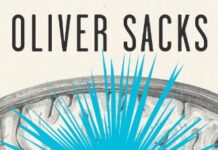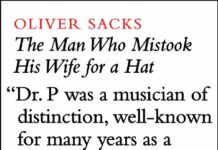
Ebook Info
- Published: 2017
- Number of pages: 148 pages
- Format: PDF
- File Size: 2.48 MB
- Authors: Oliver Sacks
Description
From the best-selling author of Gratitude, On the Move, and Musicophilia, a collection of essays that displays Oliver Sacks’s passionate engagement with the most compelling and seminal ideas of human endeavor: evolution, creativity, memory, time, consciousness, and experience. Oliver Sacks, a scientist and a storyteller, is beloved by readers for the extraordinary neurological case histories (Awakenings, An Anthropologist on Mars) in which he introduced and explored many now familiar disorders–autism, Tourette’s syndrome, face blindness, savant syndrome. He was also a memoirist who wrote with honesty and humor about the remarkable and strange encounters and experiences that shaped him (Uncle Tungsten, On the Move, Gratitude). Sacks, an Oxford-educated polymath, had a deep familiarity not only with literature and medicine but with botany, animal anatomy, chemistry, the history of science, philosophy, and psychology. The River of Consciousness is one of two books Sacks was working on up to his death, and it reveals his ability to make unexpected connections, his sheer joy in knowledge, and his unceasing, timeless project to understand what makes us human.
User’s Reviews
Reviews from Amazon users which were colected at the time this book was published on the website:
⭐An amazing book by an amazing mind. I was so impressed by Sack’s grasp on scientific history. He was able to site works from the 17th century as well as state of the art scientific discovery. Paraphrasing: humans tend to forget experiences that don’t work in story (or theory). It may be one reason religion has such a hold on humans, because it gives story to experiences. Observations (made so eloquently in the late 1800s are largely forgotten by mankind; unless there was a theory that included the observations. Darwin, made such a splash because he provided a theory behind the observations – evolution. Science strives to validate the story through observation and through verification through extrapolation or interpolation. So that when all the “points” (or trials) “fit” the theory it is deemed true. Sack’s description of the history scientific progress being a kin to a mountain climber’s ascent of a mountain was also valuable. He didn’t see, Newton’s work, for example, being replaced by Einstein’s work on relativity; but rather Newton’s work was a picture at a given elevation – perfect in it’s description of the landscape; but one that at a higher elevation, as the ascent progressed, the landscape would look different. He saw historians as looking at the climb after the “trial and error” attempts at climbing the mountain, looking at the “royal climb” devoid for the most part of the trial and error – and countless false attempts and rouge routes. I’m struck by two things: modern day man’s relative lack of curiosity and our inattentiveness to the natural world. Instead we seem fixated on technology and the superficial. This doesn’t seem to bode well as the natural world gives insights to adaptations made over billions of years. There is SO much to be learned in the evolution that has proceeded.And this just scratches the surface of the insights to be gained into consciousness there is in this book.
⭐Mr. Sacks wrote a winner of book! If you want meaning to your life, or just curious of why things are the way they are in our human world this book will take you beyond that !ENE
⭐This essay collection gathers together essays on miscellaneous topics by the late Oliver Sacks. Anyone who has read other books by the neurologist would not be surprised by the range of writings here. There are illuminating chapters on Darwin’s late-age investigations on insectivorous and climbing plants, Freud’s pre-psychoanalysis career in demystifying some of the basic anatomical and neural characteristics of the brain (much of this solid accomplishment has been lost in the drive to debunk psychoanalysis), the neurological characteristics of thinking speed (in which he speculates whether the brains of lightning-fast thinkers like Robert Oppenheimer and Robin Williams are wired differently), especially in Parkinsonian patients, and William James’s thoughts on various “forms” of consciousness that can potentially be accessed by drugs or surgery. I especially liked the final chapter on contingency in scientific discovery in which Sacks discovers anecdotal accounts of important neurological disorders from the 19th century which were forgotten and rediscovered in the 20th. Sacks always emphasized the importance of storytelling and anecdotal evidence, and this attitude is especially valuable in our age of statistics and large-scale data collection. The essay collection here is not as eloquent as some of his other books, but his honesty and intense curiosity for disparate topics comes across as usual.
⭐One finds here just the urbane, even casual sophistication that one would expect from a masterful essayist. Sachs learned much from Darwin, Claude Bernard, William James and other 19th century thinkers that anticipates critical concerns of our own contemporary neurobiology. And he shares it with an enviable ease and always fresh curiosity. Whether he is addressing the neurological work of the early Freud, the relation of imitation to creativity, or the altered regulatory physiology in Tourette’s syndrome, his passion for knowledge is flat-out contagious. I particularly appreciated how he high-lighted the neglect of past wisdom in an age when the lure of current idols (i.e. pharmaceutical magic bullets and the more pedestrian forms of cognitive neuroscience) are seductive for many. Finally, the autobiographical note on his situation during the last months of his life in “A General Feeling of Disorder” shows why anecdote can be so valuable. Make no mistake about it; his body may no longer be with us, but his passion is as alive as ever in us as we read and learn from him.
⭐A very luminous mind, his humanity is to be aspired to. Some topics are a bit scientifically technical for a regular lay no science background person but well written enough to navigate slightly above the surface. Learned a lot
⭐OWS’s mind is wonderfully prepared for this, his final romp through the quirky histories of Evolution, Science, and Medicine. He adroitly connects the dots even where we didn’t by searching through ancient texts to find early truths that were either forgotten or rejected (some for a thousand years) because they were discovered before the common consciousness was ready them (he searched for three years before he came upon the writings of a physician working with amputees during the Civil War that described the phenomena of phantom limbs). Read this and watch the streams of consciousness become the River!
⭐I absolutely love Dr. Sacks, so this is in no way objective. Nevertheless, I can say straight out the things he says about the physical brain, with all it’s neuro-biology, added to the somewhat nebulous (but not) ideas over time about thought and mind — were so fascinating I didn’t want to turn off this audio book. Another big winner.
⭐This book is a very interesting collection of ideas beautifully related. His historical sections about his own boy hood and the influence that Darwin and Freud had on his thinking were particularly interesting and his diligence in seeking out historical papers on a range of subjects provide an excellent example for all researchers.Well worth reading.
⭐An unfortunate book – not a new book by Sacks at al, but a loosely related collection of his old writings. There is little in here about consciousness, depsite the title.
⭐Excellent book with his final thoughts
⭐Ha terminato la raccolta di queste dieci monografie venti giorni prima della morte, dopo averci lasciato il suo ultimo capolavoro on the move, la coraggiosa autobiografia. Non un’accozzaglia di articoli sparsi ma un fil rouge da Darwinn botanico che scopre l’impollinazione crociata dei fiori nel giardino di casa, a Freud che studia i gangli nervosi dei protei, a Trieste studio’ il sesso delle larve di anguilla! L’acromatopsia, la velocita’ come viene percepita dal cervello, il freeze frame in patologie cerebrali, gli scotomi, quei lampi di luce che a volte percepiamo nella visione e che gli richiamano quelle scoperte scientifiche troppo avanzate per il periodo storico in cui sono state elaborate e “riscoperte” molti anni se non secoli dopo da altri scienziati in modo indipendente. Ampio spazio alla localizzazione della coscienza a livello cerebrale, discorso lasciato in sospeso con qualche riserva nell’autobiografia, qui aggiornato con gli ultimi studi sulla visione: non un fenomeno chimico/fisico a livello retinico ma un vero e proprio “cloud” di neuroni. La casistica personale, le vastissime conoscenze scientifiche, la sua abilita’ di divulgatore, pur restando a livelli altissimi di autorevolezza, ne fa fede la sterminata bibliografia, sono la cifra di questo ultimo libro ufficiale. Non ci aspettiamo novita’ eclatanti, ma un eventuale epistolario contribuirebbe a mettere a fuoco, se ce ne fosse bisogno, la personalita’ di questo immenso e modesto scienziato, cui piaceva mangiare le scatolette di sardine stando in piedi, immagino facendo attenzione a non imbrattare di olio il pavimento! lo faccio anch’io ma mi becco i rimbrotti di mia moglie.
⭐
⭐This is the last book written by the world famous neurosychologist and probably his best. All his books are worth reading as he covers a vast are of Human brain function and disfuntion.Deliverd earlier than expected without any damage.Thanks Amazon.
⭐An excellent summary of his and other’s work over time in the field of neuroscience, psychology, evolution and much more. His discussion on varied subjects such as vision, memory, innovation and intelligence is especially interesting.A small volume with a ton of insights.
Keywords
Free Download The River of Consciousness in PDF format
The River of Consciousness PDF Free Download
Download The River of Consciousness 2017 PDF Free
The River of Consciousness 2017 PDF Free Download
Download The River of Consciousness PDF
Free Download Ebook The River of Consciousness


